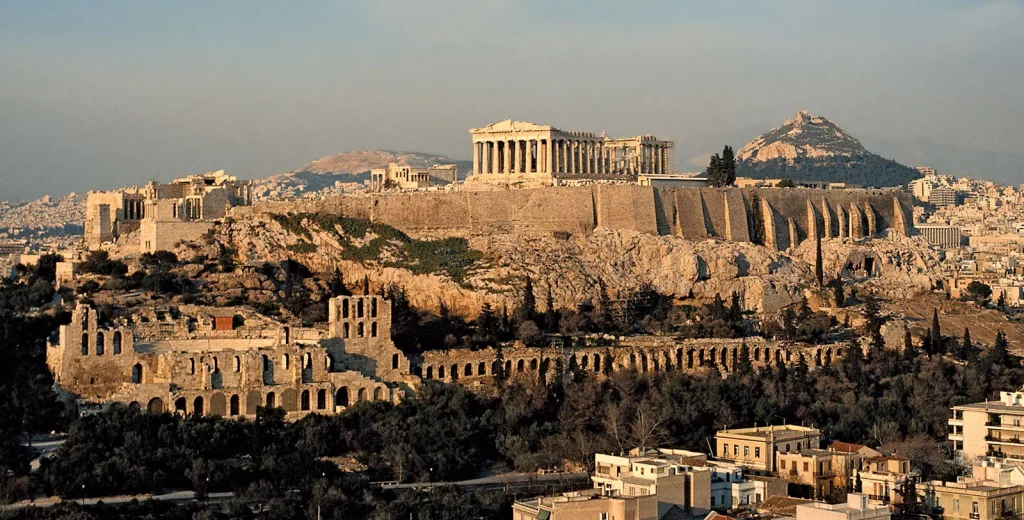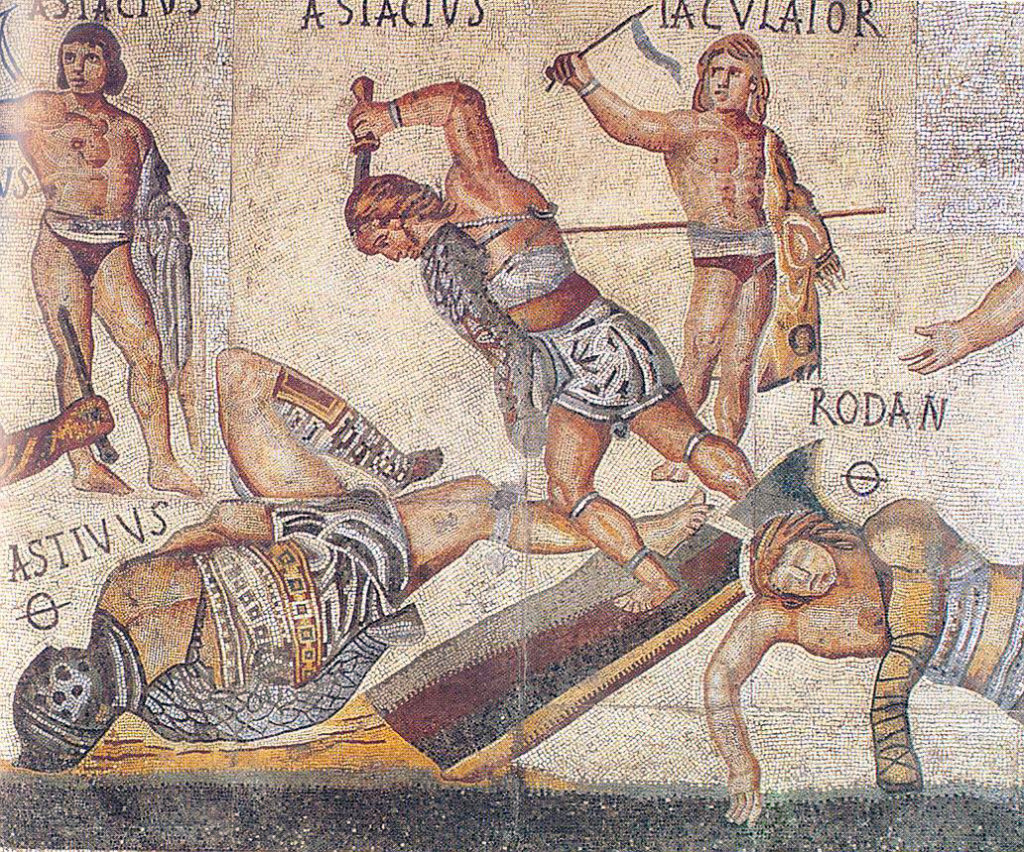Last updated on November 4th, 2022 at 05:50 am
The city-states of ancient Greece were vital for the grand and expansive civilization to thrive in the way it did. Known as a ‘polis’, an independent city-state represented an organized and structured community.
It was like a mini-city, with its own urban area center and then rural countryside around the outside. Many even had protective walls for public spaces like churches, government buildings, and temples.
Although these city-states often shared a common language, culture, and ethnicity, each city had its distinct laws, government, and army. People formed city-states when they began to live in settlements rather than nomadic tribes.
These cities became more important as trade routes developed throughout the region. They became even more significant after the Peloponnesian War (431–404 BCE) pitted them against one another in a struggle for power and hegemony over all of Greece.
This guide is full of everything you need to learn about these city-states and their contributions to Greek civilization.

What is a City-State of Ancient Greece?
The city-states of ancient Greece were autonomous, independent city-states united by a common language, religion, and culture. Beyond that, they were self-sufficient and separated from one another. Each city was ruled by a king, senate, or some other form of government, with religion and distinct social classes. They often had armies and navies for protection against invasion and were the primary centers of education, science, medicine, and philosophy during the Golden Age of Greece.
As farming became more common, people settled around a central food production community and created larger settlements. These larger settlements became towns and then cities.
As cities became more important as trade routes developed, they began competing for influence and dominance over the region. Many of these cities were situated on the shores of the Mediterranean Sea, allowing them access to the rest of the Western world.
There are many theories as to how this system of city-states came about. One theory suggests that it resulted from a relatively peaceful development process.
People developed new technologies and trade routes to allow them to live in larger communities. Another theory suggests that it resulted from a somewhat violent process in which humans established city-states by force and conquered other city-states.
Due to the region’s mountainous terrain, this process of having independent city-states would have come quite naturally. Because mountain ranges divided large land areas and the Greek coast was dotted with inhabited islands, it only made sense that these city-states would have developed.
It would have been impossible for one centralized location to manage them all effectively. When you think of an island like the UK and how London manages England from a geographic standpoint, it makes sense to have the central location, whereas this would be near-impossible in Greece.
These physical barriers would have created the divide, allowing isolated places to still thrive in their own way while still being connected to the greater civilization.
All in all, there were said to be over 1,000 city-states across the Ancient Greek civilization. So instead of diving into every city-state, we’ll discuss some of the most prominent ones.
Athens
The ancient city of Athens is considered by many to be the cradle of Western civilization. The city was an important learning center, a hub of culture and art, and a bastion of democracy. In addition, it was a prominent center of trade in the region.
Athens was founded in the tenth century BCE by colonists from the city of Corinth. These colonists established a city on a hill overlooking the Attic plains. Like many ancient cities, Athens was several smaller towns before it united as one entity.
Today, Athens is one of the most famous cities in the history of civilization. It was the birthplace of many important human advancements.
Additionally, it was where many of the great philosophers and thinkers lived and worked. These included Socrates, Plato, Aristotle, and many others. Athens also produced some of the most important literary, philosophical, and scientific works.
Today, Athens is a major tourist and cultural hub with a population of about 3.1 million people.
Sparta
Sparta was a city-state located on the southern coast of the Peloponnese peninsula in southern Greece. The foundation of Sparta was established as an independent city-state in the late 9th century BCE. The Spartans were an elite warrior society that ruled over the other city-states with an iron fist and an almost religious devotion to military discipline.
Ancient authors often viewed the Spartans as unruly and unjust. Nonetheless, they were a prominent force in Greek history. The city-states of the Peloponnese peninsula often engaged in a conflict for dominance over all of Greece. This aggressiveness eventually led to the Peloponnesian War (431–404 BCE). Sparta was a prominent member of this war.
The Peloponnesian War involved the conflicts between the city-states of the Peloponnese region and the larger, more powerful states of mainland Greece. The war lasted nearly a quarter-century and pitted Sparta, Athens, Corinth, Megara, Thebes, and other cities against one another in a struggle for power and hegemony over all of Greece.
Nowadays, Sparta is known for being the home of the famous story of the Menelaion, who was taken captive by Paris. The story is considered one of the most famous in Western literature and is even included in some modern Bible translations.
Corinth
The ancient city-state of Corinth was located in the northwestern part of the Peloponnese peninsula in southern Greece. The city was situated on a peninsula surrounded by the Corinthian Gulf east and the Saronic Gulf west.
The city was founded in the 9th century BCE as a colony of the city-state of Corinth. It was an important center of trade, naval power, and diplomacy in antiquity.
The city was a member of the League of Corinth, a confederation of city-states formed in the early 5th century BCE to unify Greece under Macedonian leadership and conquer the Persians. The city was also a significant center of education, philosophy, and art during the Hellenistic Period of Greek history.
Thebes
Thebes was an ancient city in central Greece on the river Thebaid. The city was founded c. 1100 BCE and was an important center of Greek culture and religion during the Hellenistic and Roman periods. However, they were defeated, and Thebes was taken by Alexander the Great, who then made the city his capital.
Syracuse
Syracuse was an ancient Greek city-state and one of the five significant city-states of the ancient Greek civilization known as the “Doric League.” Founded in the early 8th century BCE, it was an important center of Greek culture, commerce, and religion during ancient Greek history’s Archaic and Classical periods.
The city was located on the southern coast of the southern tip of the Italian Peninsula, opposite the island of Sicily. Its most important contribution to history was its role in the Peloponnesian War.
At the start of the war, the city was allied with Sparta and under the control of that city-state. However, the city rebelled against Sparta and allied itself with Athens.
This action was critical to the outcome of the Peloponnesian War because it allowed Athens to use Syracuse as a base for their navy and allowed them to attack Sparta from two sides at once.
The city of Syracuse was founded in 734/733 BCE by Greek colonists from Corinth and Tarentum, led by the tyrants Hiero II and Dionysius I.
The city had grown into a powerful state, controlling most of central Italy (except for Epirus) and parts of southern Italy. However, in 342/341 BCE, it was conquered by Carthage after a long struggle.
The Carthaginians founded their colony there (called “Carthage”) with a robust naval fleet that controlled western Sicily from its base at Syracuse. Then, in 276 BCE, they destroyed the other great rival Greek colony in Sicily, the one founded at Camarina on the north coast.
Aegina
Aegina was an ancient Greek island colony in the Saronic Gulf just off the coast of modern-day Greece. The island was a member of the Delian League and the Peloponnesian League, two alliances that guarded the Aegean Sea against piracy and invasion by foreign powers.
The city of Aegina was one of the most important of the Aegean islands, both for its role in the Peloponnesian War and for its contributions to ancient Greek civilization. Aegina was one of the most important of the Aegean islands.
Rhodes
The ancient city of Rhodes was an important trading center in the Mediterranean Sea in ancient Greece and is known for being a cosmopolitan place due to the nature that people came from all over the region to this hub.
Located in the eastern part of the island of Rhodes, the city was a member of the Delian League. The city was also a leading contributor to ancient Greek culture, including the development of the Colossus of Rhodes and the invention of the first wine amphora.
The island of Rhodes was one of the most important of the Greek islands, both for its role in the Peloponnesian War and for its contributions to ancient Greek civilization. Rhodes was a cosmopolitan city. Most of its population were Greek colonists, with a significant minority of Phoenicians, residents of the nearby island of Crete.

